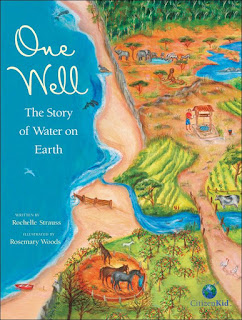Welcome Poetry Friday friends! This year for National Poetry Month I wrote and shared found poems, most of which were science- or nature-themed. Even though my poetry sisters and I are sharing the results of this month's challenge today, I couldn't let the month pass without completing one final poem in this series.
Today's found poem comes from Seashells: More Than a Home, written by Melissa Stewart and illustrated by Sarah S. Brannen. Unlike other found poems I have written this month, this one uses words and phrases in an order that is different from the way they appear in the text.
Seashells
at home in the sea
mollusks
live a secret life
some float and dive
dodge and dart
skim and glide
through the water
some spend time
on the ocean floor
scrape and grind
sand and mud
tunnel into the seabed
in time, a curious afterlife
as treasures
in all shapes,
sizes and colors
wash up on beaches
all over the Earth
Poem ©Tricia Stohr-Hunt, 2021. All rights reserved.
You can find links to all the found poems I've written this month on the
NPM 2021 page. I also shared these poems as images on
my Instagram, which is a good place to go if you want to see them all in one place.
*****
This month's Poetry Sisters challenge was to write a poem in the style of
Linda Hogan's "Innocence." I spent a lot of time thinking about (stressing over) this one and was feeling really lost. We had an opportunity to exchange ideas before we met on Sunday, and our subsequent conversation about form and topic really helped me think about how to proceed. Since I have volcanoes on the brain, I decided to use a variation of Hogan's first line and begin with "There is nothing more __." The word I chose was constructive. The poem didn't go where I expected, but they rarely do. This one is untitled.
There is nothing more constructive
than an active volcano
eerily silent for centuries then
suddenly roaring to life
with a mighty rumble
belching ash, cinder, and smoke
into the sky
while fissures in the earth
ooze lava in a scorching
blanket of molten rock
Beneath the surface, Vulcan
hammers away at the smithy
forging weapons of war
Earth tremors have me wondering
who has wronged whom,
and why
We do not learn from our missteps
conflict is inevitable, as unavoidable
as an island newly formed
from a volcano awoken
Poem ©Tricia Stohr-Hunt, 2021. All rights reserved.
You can read the pieces written by my Poetry Sisters at the links below.
Would you like to try the next challenge? Next month we are writing ekphrastic poems. Share your poem on May 28th in a post and/or on social media with the tag #PoetryPals. We look forward to reading your poems!
I do hope you'll take some time to check out all the wonderful poetic things being shared and collected today by
Matt Forrest Esenwine. Happy poetry Friday friends!
















